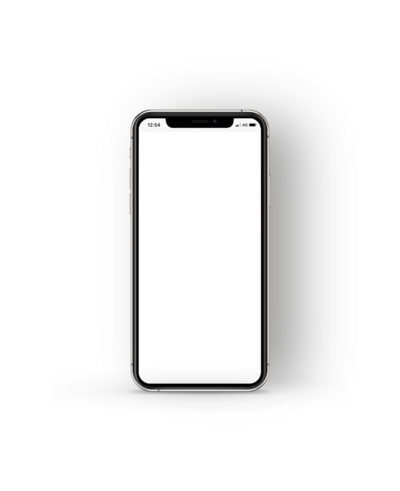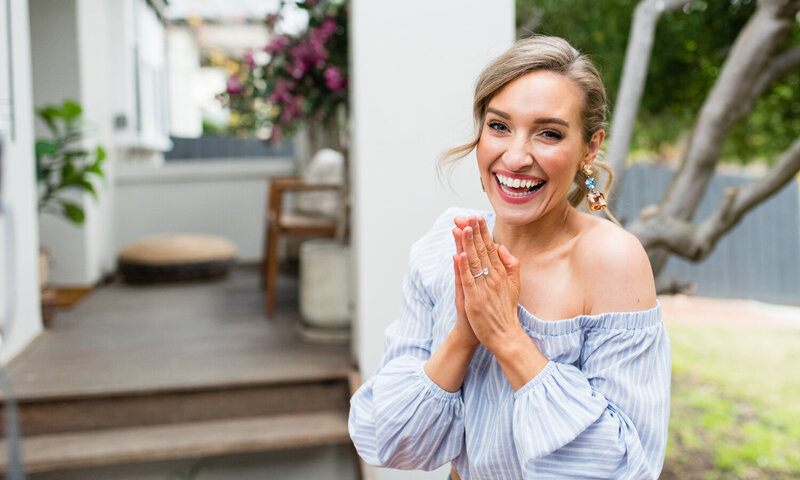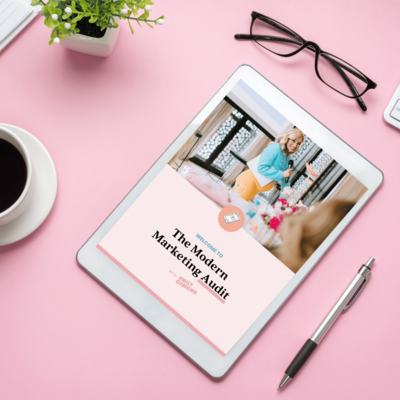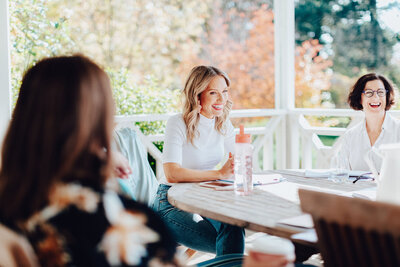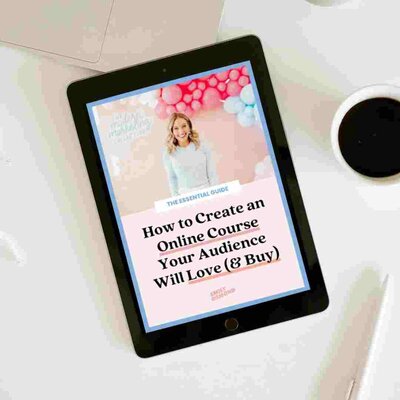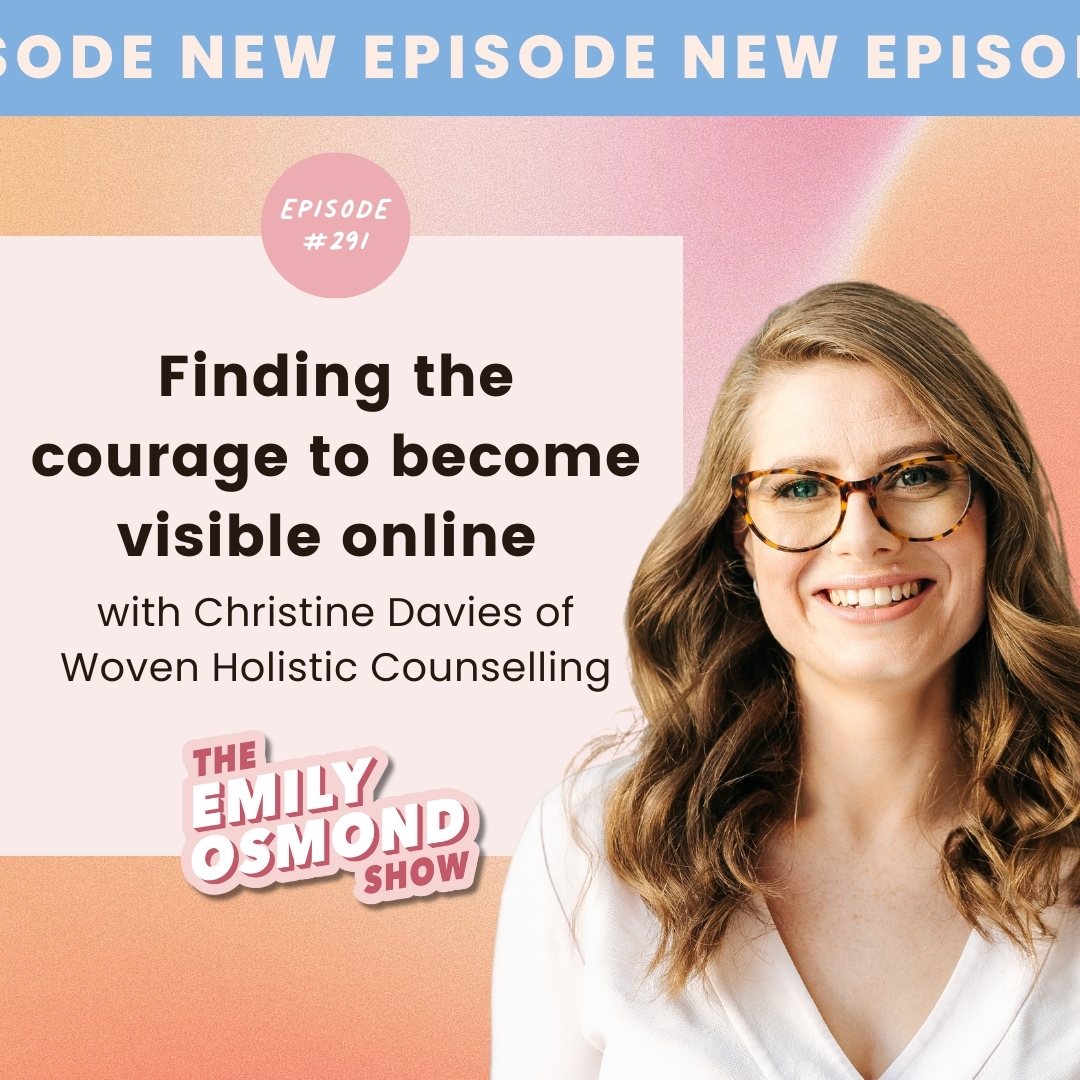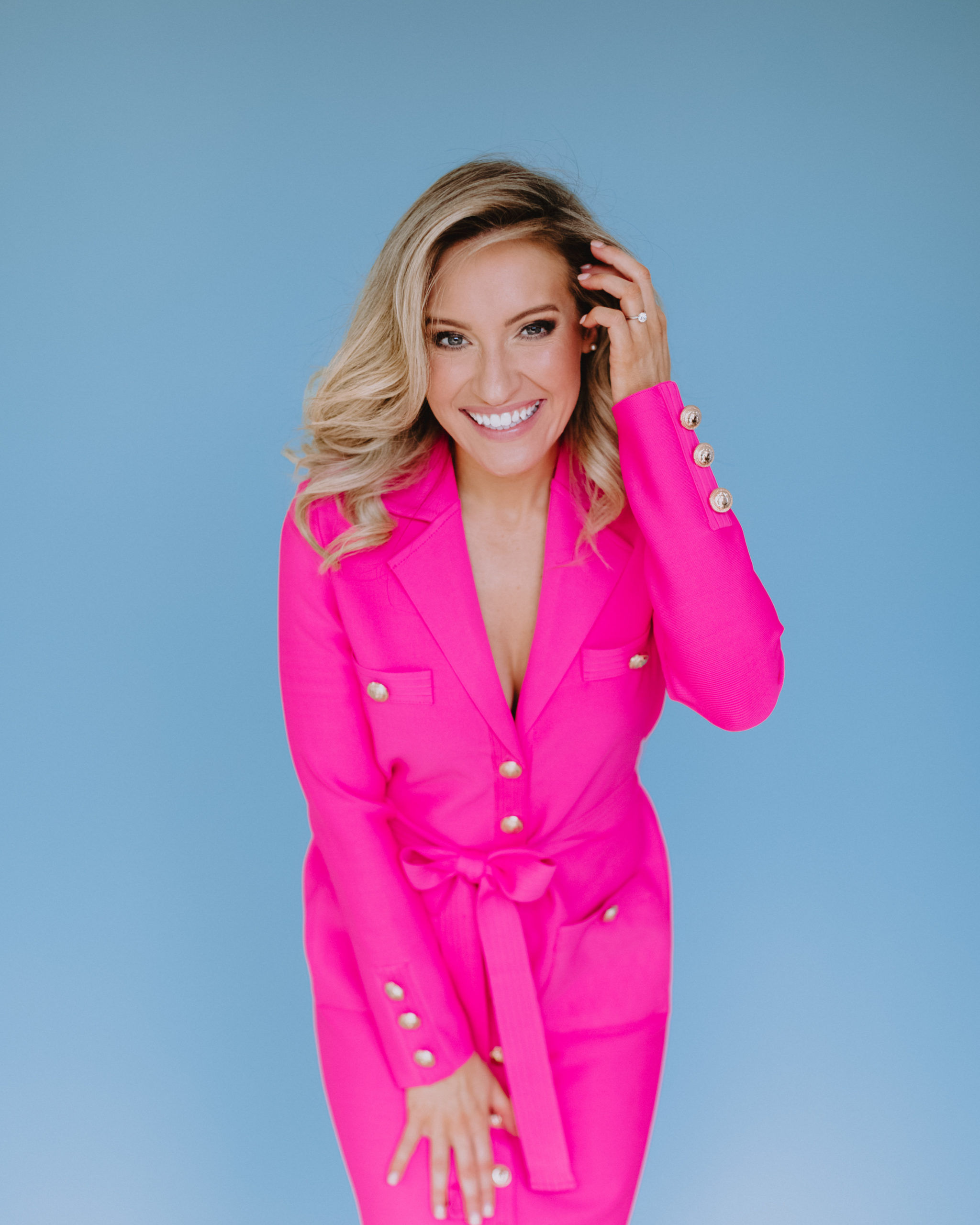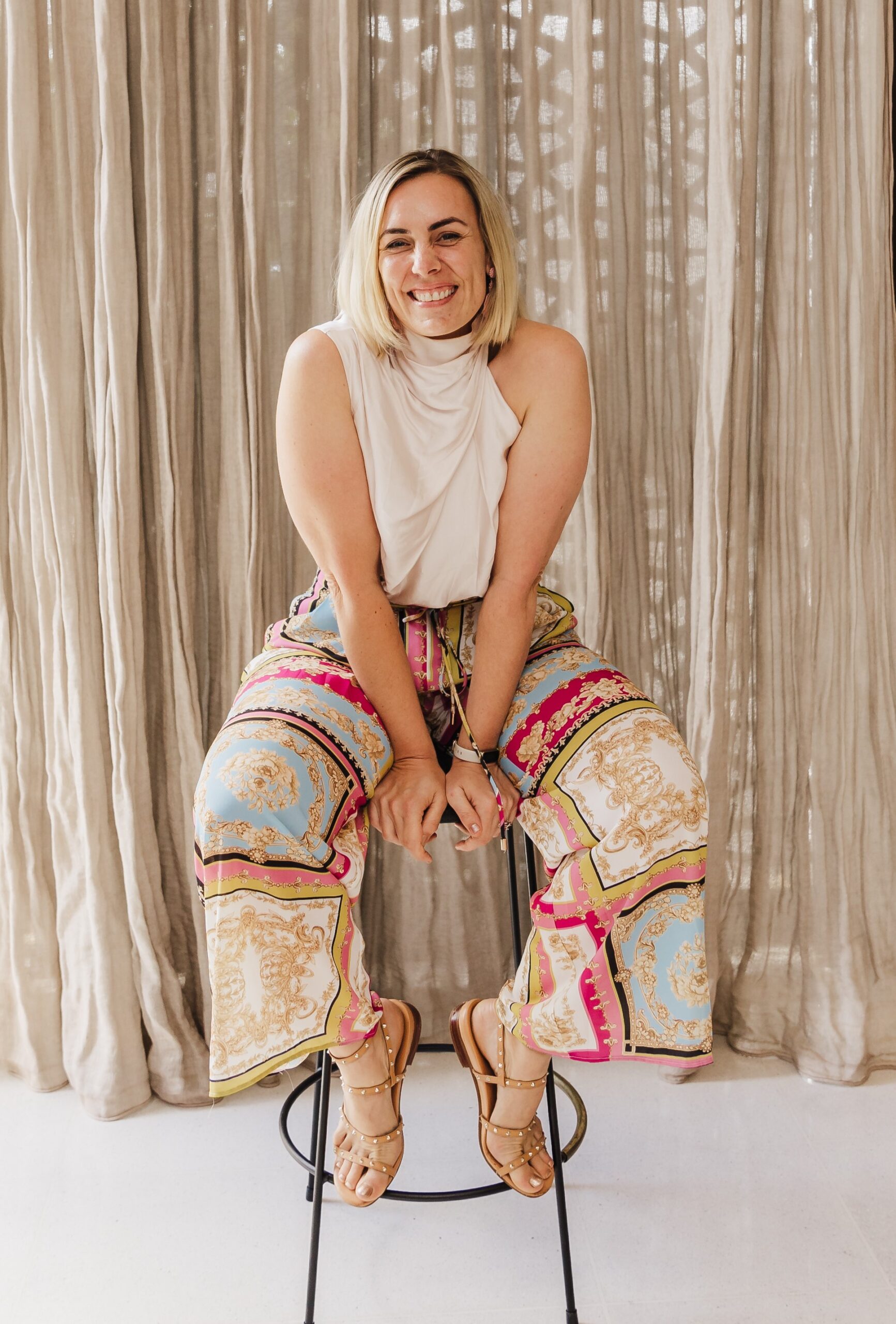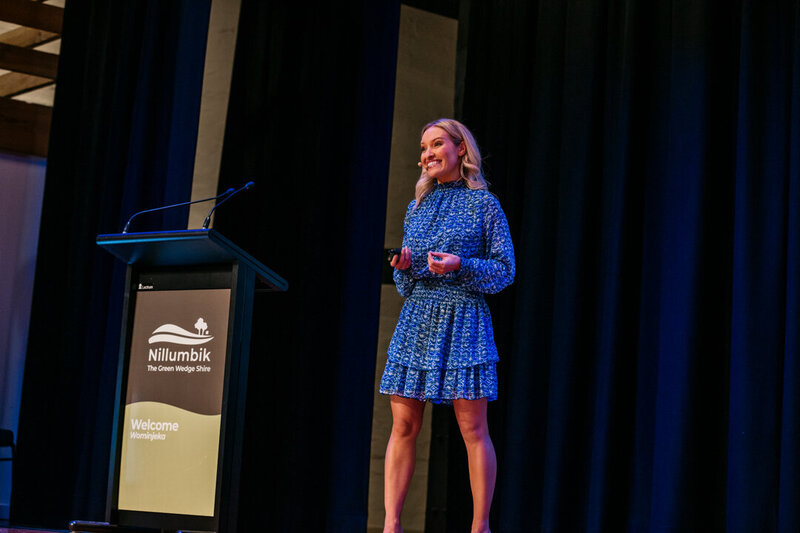explore now
Save big on my go-to tools & tech
Fav Tools
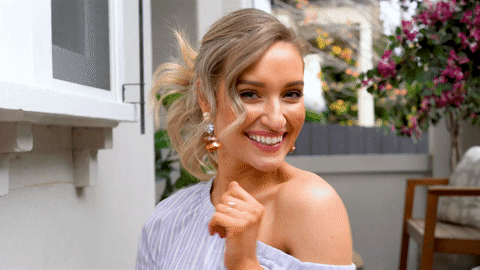

tune in now
Tune into the top rated podcast for practical strategies and candid conversations with entrepreneurs
podcast
The Emily Osmond Show
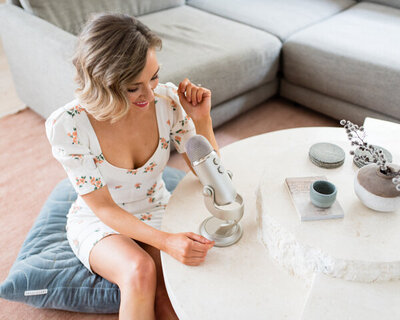

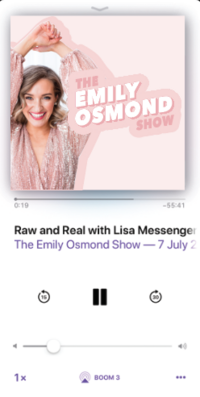

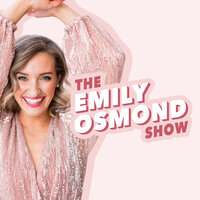

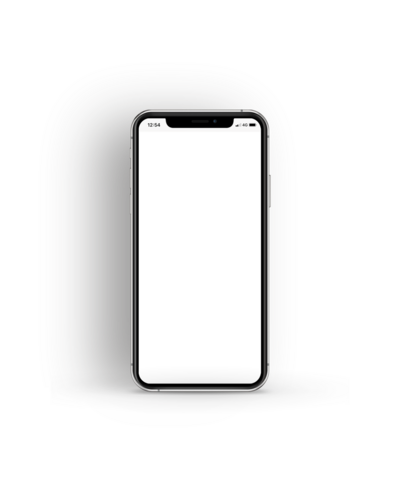

learn more
I’m an international marketing coach, top-ranking podcast host, speaker, interiors lover and black coffee drinker.
Hey, I'm Emily




How to become more intuitive in your business with Kerry Rowett
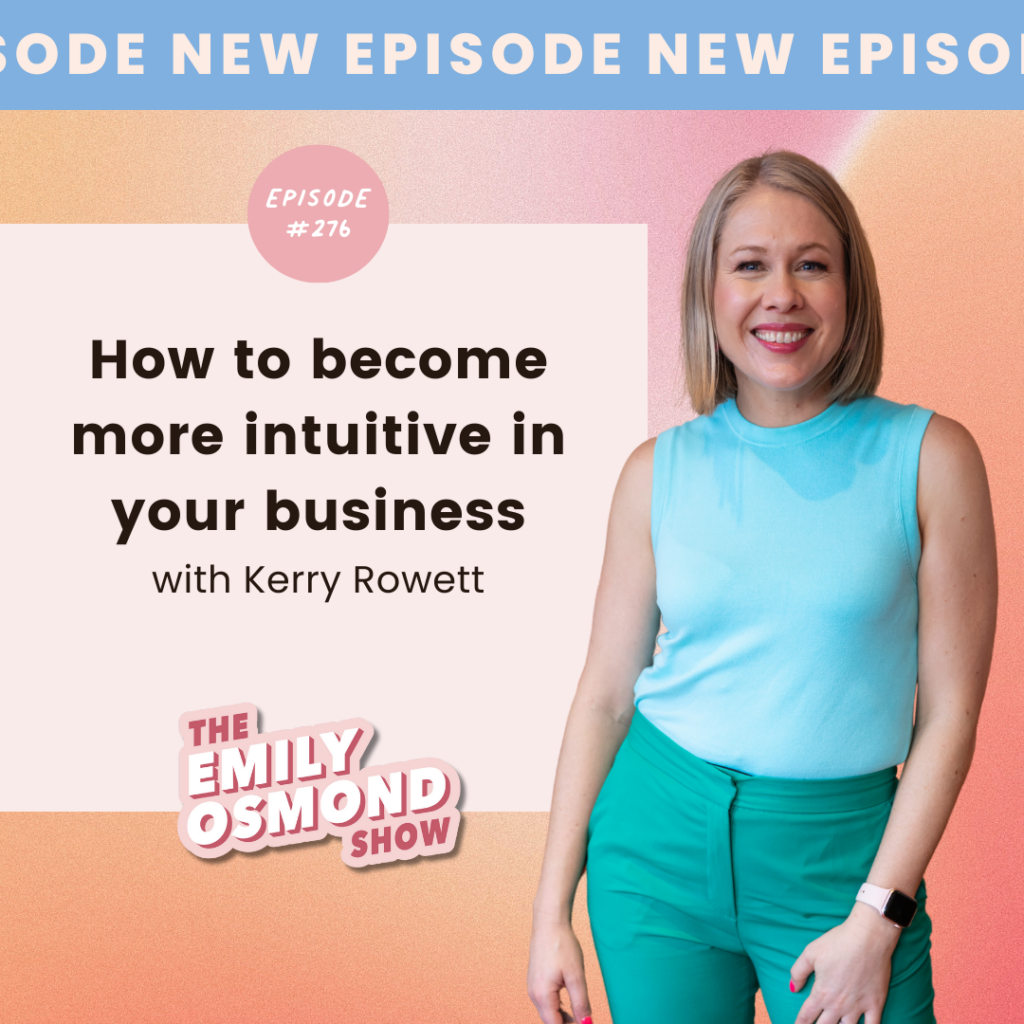

Do you ever get stuck second-guessing yourself, overthinking things, and feeling very unsure about which direction to go in or what decision to make?
This might be because you have disconnected from your own intuition: that inner knowing, your gut feeling, your own instincts.
Well, today’s guest is here to help you reconnect with your intuition in business so you can make decisions with more clarity, calm and confidence.
Today I’m joined by Kerry Rowett, who is the secret behind many well known online entrepreneurs you no doubt know and follow, here in Australia and internationally. Kerry uses her skills as a Kinesiologist, Reiki Master, Positive Psychology, NLP and her intuitive gifts to support her ambitious entrepreneurial clients to get out of their own way and achieve their goals with more ease.
Kerry has a podcast and book called Align + Attract. She teaches other female entrepreneurs to identify what they really want, release their specific blocks and align to their goals in her signature program also called Align + Attract.
If creating alignment is important to you – you’re going to love this episode.
We speak about:
- How to become more intuitive in your business
- What intuition looks like, and doesn’t look like
- And the power of truly trusting yourself and your inner knowing.
Emily Osmond (00:01): Well, Kerry, fantastic to have you here with me today.
Kerry Rowett (00:06): I’m so excited to be here with you, lovely Emily.
Emily Osmond (00:09): I thought we could share off by, start off by sharing how exactly we met. So we met at a conference earlier this year hosted by our lovely friend Tash Corbin. It was a heart-centered business conference. Now Kerry, what exactly did we bond over do you think?
Kerry Rowett (00:29): We’ve wondered over our fast paced walking. So I invited Emily to go on a morning walk with me and we discovered we have both got a very brisk pace. And we just love, yeah, walks in nature. Yeah, and walks in nature. Yeah. And probably not many people, and not many people would be like keen to go for an early morning walk ahead of a conference.
Emily Osmond (00:44): I was wondering if you’d pick up on what I was saying. Yeah, yeah. So we were out, we were like, oh, do you wanna go on a walk in the morning? Yeah, yeah. And we realized we both walk really fast. Exactly. But oh, it was so nice to get out and it was in Noosa, which is a beautiful part of Australia and just to kind of get out of the conference facility for a little bit in the morning and power walk together. So we had some good chats and I knew that I wanted to have you on my podcast. So I was delighted when he said yes, to share more about using our intuition when it comes to business. So Kerry, I’d love to start off with how did you get into this work in the first place?
Kerry Rowett (01:30): So I was a teacher and I had spent many years like working overseas and I was now in Melbourne. I’m from South Australia originally. And I was just noticing that I felt really quite stuck and kind of unhappy. And I thought there’s no reason for me to be feeling unhappy. Like I’ve got… everything that I could really want and things are going quite well. And then I saw like a flyer for a kinesiologist so I decided to go along and when I had that first session I was just so blown away by what this kinesiologist was able to tell me about how I was feeling and where it had come from and all these connections that she was able to make so I kept on having sessions and I used to have this like recurring depression that would just come and go and it came back and I just happened to be at the doctor and he’d said to me, look, I think this is something you need to deal with. I think you probably should go on antidepressants. And so I took the script away with me and the next day I had another appointment with the kinesiologist and I told her and she said, well, would you like to work on it in your session? And honestly, I just thought it’s not going to do anything. I was like, if you want to.
No confidence in the process for being able to work on something so significant and yet we had that one session, another session the following week and then the depression was gone and this was 14 years of this recurring on-off depression that we just come and go and it has not come back since. So it was not long after that but I thought wow I think this is something I really want to help other people with like this is really quite profound and life-changing and I want to help people the same way that I’ve been helped.
Emily Osmond (03:17): Hmm. And what, what does that look like now, Kerry? I know that you work with some really successful, incredible, smart, talented entrepreneurial people, but would you like to just give us a little bit of an overview of the work that you do today?
Kerry Rowett (03:34): Sure, so I started out, like this is back in 2009, seeing clients in person, and I worked then on a lot of like self-esteem and confidence and things like that, like the issues that I guess I’ve experienced as well. And then I grew my practice quite quickly and I was booked out within a couple of years, which is not super common for a practitioner. And so… I started to attract more business clients and then I became interested more in online business and you know I was doing courses in that area and I started to meet more like people who were also in the online business space and they started seeking out my services as well and it just kind of grew from there so quite early on I had met people like Denise Duffield-Thomas, Leonie Dawson, and lots of people who are quite well known in the space. We were all in those relatively early days of our business back then. And then fast forward to today, my business has been exclusively online for many years, and I predominantly work with high achieving female entrepreneurs who just want to get out of their own way. Like they’re very successful often, really brilliant people, but they can find that things come up and they want to have ways to be able to release, you know, what’s holding them back from creating what they really want or that next level.
Emily Osmond (05:02): Hmm. So, what does, I guess, getting out of our own way look like? And how do we do that?
Kerry Rowett (05:17): It’s such a good question. I think it’s so unique to each of us. So oftentimes when people come to me they will tell me like these are all of the things that are stressing me out at the moment. These are the challenges that I’m experiencing. So we’ll bring all of that into the session. Everything that we’re consciously aware is blocking us and then we’ll also bring into the session like maybe I feel like I haven’t been able to create or it feels like a bit of a stretch or it feels like a bit of a challenge. It’s not always growth, I should say as well, because most of my clients or all of my clients are interested in a sustainable business. They don’t wanna have just monetary success, but then there’s an impact on their family or there’s an impact on their health. So it’s looking at that more holistic view. And then using kinesiology, I can find out emotions that are coming up that are preventing you from being able to create this. What are the beliefs? What are the stories? What kind of thought patterns are you experiencing? Where has this come from? So using the tool of kinesiology, which is a muscle testing modality, I can muscle test myself and find out for my client exactly what it is that’s holding them back. And then with that information, you know, they can feel like they can go a lot deeper and we use energy techniques to release that blockage. Those blockages at the source. So then you can kind of, things really open up and you can feel like there’s a lot more possibility. And for a lot of my clients, they can then feel a lot more resourceful, a lot more resilient as they move forwards.
Emily Osmond (07:04): I also just want to quickly tap into the fact, Keri, that you do this online. And I think for a lot of people listening, they’re like, wait, she does like kinesiology, but through the internet, how, how does this work online? Tell us.
Kerry Rowett (07:18): Yeah, it’s such a great question. I mean, this really connects to something we’re going to talk about in a moment, which is intuition and trusting those intuitive nudges. So it was not the case that I looked around and saw other people doing kinesiology online and then thought, well, if they can do it, I can do it. I didn’t know of anyone who was doing that. So what happened was somebody asked me from interstate if I could do a session for him. So I don’t work for a lot of male clients, but it was a man. And he said, I’m sure you’d be able to figure it out how to do it. And so I did. I actually figured out how to do it. He saw the possibility and he himself was a very intuitive person. I said, he said, I think this is gonna become quite big for you. Yeah. So I developed my own.
Emily Osmond (07:56): So he saw the possibility, hey? Well, that’s cool.
Kerry Rowett (08:09): It’s cool. And so I developed my own way of adapting what it was that I’d learned and the way I’d learned kinesiology. So that I was able to do that online. So some people who are listening might have seen a kinesiologist in person and the kinesiologist might hold certain acupressure points for you or they might work with your chakras. But… I will support my clients to do that for themselves. I will show them the acupressure point that we are going to use. Or they might hold an energy center, or they’re listening to the information that’s coming up. And I’m really helping them to explore and to go deeper and to understand what it is that’s coming up for them. So yeah, I developed that myself, but I had to really trust in my own intuition. And then also in the results that my clients were getting. So after this one person, then over time it just sort of organically happened that you know one client would be in hospital, someone else was home with a young baby, someone else had moved interstate or overseas, or was traveling and so…I just started to have more people and then these online business friends that I was making started to ask for sessions as well. And so that’s how it began. But yes, there was nobody else at that time that I’m aware of doing that. So it took courage to just own that I was going to be able to do it.
Emily Osmond (09:36): Hmm. And that leads really well, I think, Kerry, into how all of us can perhaps strengthen that muscle of tapping into our own belief and doing things even when we don’t see other people doing them. So do you think perhaps it might be good to start with how you define intuition or what that really looks like?
Kerry Rowett (10:02): Yeah, I love that. So intuition, it’s really being able to trust in your knowing and how that arrives for you. So for some of us, that is in our felt sense. So that we call that Clairsentience. For other people, they might receive visuals. So that is clairvoyance. Some people hear things that’s clear audience and so it’s just being aware of how your intuition actually arrives and when you do get an intuitive nudge having the courage to act on it even though you might not know where that is going to lead so that really is a practice.
Emily Osmond (10:53): Okay, now you said that you kind of tapped into a little bit of my audience before this podcast. What did you pick up on there and how did you do that as well? What did you do to do that and what did you learn? Because when you shared with me, I’m like, yep, you’re spot on.
Kerry Rowett (11:10): Yes. So this is one of the ways that you can use your intuition. And one of the ways that I use it is I will, for example, tune into my own clients and what is it they need to hear. And that will inform what I share on my own podcast and what I share on my social media. And then when I was coming on your podcast, Emily, I did the same. So I listened to multiple episodes with you this morning just to help me to continue to tune into your energy, even though like I love your podcast, to really orient me to that energy and then I just asked myself like what does Emily’s audience most need? Like what’s going to be really supportive of your audience and what I felt was like your audience really needs things to be real so make it real for me and like they want action steps.
Emily Osmond (11:47): Okay.
Kerry Rowett (12:08): I also like tell me what to do. Like they don’t want it to be too fluffy or too like theoretical. It’s like yeah just
Emily Osmond (12:16): Yup, that’s, I’m like, yeah, you’re spot on, Carrie. It’s like, right, give me the action list or the to-do list and I can go get it done and tick it off.
Kerry Rowett (12:23): Yeah, so I wrote a list of some of the things that your audience can try. And this is one of the things. And the thing I heard was, I want to take notes. Give me something I can take notes on. So it’s not just a conversation about what your clients and your audience are wanting. They’re wanting something that’s very actionable, like you say.
Emily Osmond (12:38): Yeah. Yeah, yeah, spot on. Well, let’s get into it. So what, what can you share Kerry in terms of how we can tap into our intuition, some, some really practical things that we can do there.
Kerry Rowett (13:01): Yes, so yes, so we can tap into our intuition for our business. I guess a bunch of things I have written down that you can try that I think you’ll find really fun. So something I did quite early on in my business was I wrote a letter to my business. So literally I wrote down Dear, awaken kinesiology which is the name of my business, what do you want? Right? And then I wrote the answer. And the answer is actually in my book. So when I wrote my book, Align and Attract, it’s about a character called Anna. So this part of the story was actually something I had done, even though she is a fictitious character. And then you ask your then business to write back. So you just write down what comes through. So don’t overthink it, just trust the process. So many people have tried this, by the way, like hundreds of people have tried this and told me about it. And it can just be so fascinating. And one of the things that came through for me was stop worrying about me. Like that was what my business said back to me. Like this is back years ago. Your worry is stopping me from growing. Another thing that came through was
Emily Osmond (14:02): Yes! Wow.
Kerry Rowett (14:22): You need to connect with me like through your words. So at that time I used to write a lot of blog posts because that was you know the thing that we did at that time and it was like when you do that you connect with me and I would say like I really understood that and it gave me this beautiful motivation to keep doing that without it being about a specific outcome and I still actually think about that advice from my own business when I…
Emily Osmond (14:30): Okay.
Kerry Rowett (14:48): Thinking about creating the podcast. I see it as a way of me connecting with my business and then we feel connected, we feel united. Yeah so I would love you to try that. Hmm interesting isn’t it? So you can kind of just think oh I wonder what will happen but then you do it and try it for yourself. See what your business actually has to say to you. Here’s another thing you can try.
Emily Osmond (14:56): Yeah. Wow. Yeah. I’ve never heard it described that way. Hmm.
Kerry Rowett (15:18): This works really beautifully is using like commands to the universe and saying things like show me, make it obvious. Give me a sign. And I’ve actually got a really beautiful example of this in my Instagram feed. It’s a reel with a friend of mine, Amy, and we’re both wearing a pink and a purple jumper. So if you look at my feed and scroll through, you’ll be able to see it quite easily. And I suggested this to her 18 months ago because she was wanting to…
Emily Osmond (15:48): Cool.
Kerry Rowett (15:53): Wanting an insight about a business, she wanted to change direction and she’s like, I don’t know what to do. And I said, hey, if you ask the universe. And so she did. And I said to her, make sure it’s very clear. It can’t be wishy washy. Just actually make it clear that you want a very clear sign. As she said, she was walking down the street and that’s exactly what she did. The next day, she opened up her Instagram messages and she had an answer to her question.
Emily Osmond (16:20): Wow. I think I’m going to try that. Okay. Get very specific about my question. Is that right? And then put it out there.
Kerry Rowett (16:22): Hmm, right? Get very specific or get very specific about what the problem is. So sometimes we might say, like, you need to be clear about what you want. But in this case, with my friend, Amy, she didn’t know what she wanted. So she was like, show me a sign, show me what the next step is. Like, what is a beautiful direction for me for her? It led into a product based business. And just a really clear direction with that. Like she doesn’t practice in her therapy business anymore because the product business has already become so big. She closed it down. And so, yes, but if you’ve got a specific question, ask that specific question and it’s like you put it out there and then just wait and see and like expect that there’s going to be an answer. You don’t have to sit there and ruminate on it and worry about it. It’s like… This is what I like to say, get back to me when you’ve got a good answer. Put it out to the universe and it’s like, I’m only interested in really great answers, so get back to me when you’ve got one and I want the whole solution as well. And I’d like to download the whole thing. Yeah, but you know, sometimes we think, oh, you can’t do that. It’s like, actually, just give it a go and it can be incredibly powerful.
Emily Osmond (17:26): I love it. Not asking much but yeah!
Kerry Rowett (17:50): Next one. Next thing to try. Yeah, taking action on nudges. So we talked about that already a little bit in relation to, you know, how I went online and I was the first person that I certainly was aware of as a kinesiologist to go online. But I still do this in smaller ways. Like for example, when I am launching a program,
Emily Osmond (17:50): Hmm. Oh, oh yeah, cool. Let’s do it.
Kerry Rowett (18:19): If I get a nudge to do something, I’ll try to act on it. Even if it’s not really logical or it doesn’t, you know, I don’t have any logical reason to think that’s the best answer. So I’ll give you a really quick example. When I launched my group programmer line in a track last year, I just had this nudge run a webinar called Remember Your Why. And so, I just acted on it. I put it out there and then I kind of tuned in to what that was going to be about. I thought, is anyone going to be interested in this? But you know, like so many people who ended up joining the program that round said, I watched your webinar and then I just knew that I had to join. And it was just instinct. It was just intuition. It wasn’t my logical mind saying, what’s the most strategic thing that you can do, you know? And then I’m launching that same program again, or it will be soon. And the intuitive nudge I’ve had this time is to do a lot of extra podcast episodes. Now, logically, I think, well, people don’t even have time to listen to those. Like, is that going to be too much? You know, you have those logical thoughts, but that was the intuitive nudge that I’ve got. So I just act on it. So pay attention for yourself in your own business. When you get that nudge or just that feeling that there’s something that you should do and it’s outside of your normal routine or your normal strategy, or it’s like just a different topic for you to talk about, different webinars, something else, and just trust it and just go with it and let that unfold and see how see what happens.
Emily Osmond (20:19): Hmm. Do you think those nudges or maybe a better question, how do you think those nudges come to us or where from? Do you think it’s we are picking up little signals and little ideas and little um learnings and things like that and it all kind of comes together and I guess another way of looking at a nudge perhaps is that gut feeling. That comes and even though in our head, like you said, it’s maybe not the most logical thing or it doesn’t seem to make sense, but we just have this really strong feeling or sense or nudge that or this idea that this is the thing I’m going to, all right, I think I should try. Yeah, where do you think that comes from? How does it happen?
Kerry Rowett (21:10): I think you’re right. I think it is, you know, we’re picking up things all the time and it might even be like, you know, you’ve seen somebody do something or you’ve had this idea before, you know, it can come from so many different places. You’ve seen something in a completely different industry and that gives you an idea. But there is a big difference between… for example, seeing that somebody has done something and thinking, that’s a good strategy, I should really do that. That’s very different to getting this feeling of I’m going to do this and I just feel like I want to. And it’s not a strategy that you have learned, perhaps you haven’t seen somebody do it in the exact same way, or it doesn’t make complete sense. I think that’s what we can feel that it is coming more from the intuition and it’s coming from the gut and I think it’s when you but you feel like you can just trust it and the trusting at peace is a whole separate thing sometimes because sometimes I bet like everyone listening will have had a time where they had a nudge and then they talked themselves out of it because of those reasons. So like, well, I don’t know if that’s gonna work. Like, maybe it’s too much work for me to do that. It’s a bit risky because what if no one’s really interested? Right?
Emily Osmond (22:30): Mm-hmm. Yeah. Yes. I say to my students, it’s like, what is that really inconvenient idea that you have that you maybe can’t stop thinking about? It’s like, why would I think this or what? This doesn’t make sense at all. But it’s like that’s sometimes where the magic is, isn’t it? Though those ideas or nudges that we have that just we can’t really stop thinking about.
Kerry Rowett (23:04): Yeah, that’s exactly right. Like you’ve totally nailed it. Like that’s, I think when we know it’s coming from you intuition. Whereas I’m sure we’ve all had the opposite when you’re just thinking, what’s gonna be like the highest converting webinar that I could run or what, you know, is going to be the thing that’s going to solve this problem or that, you know, like you’re trying to come at something from your head and then you’re like, is it this? Is it that and you’re just overthinking it and it gets overcooked and you can’t settle on it. Whereas like you said, oftentimes if it’s that thing that just kind of arrives and it kind of feels right, if you can then take action on that, that is exactly where the magic can happen and where you can do something really unexpected or you can connect in a way that is really magical.
Emily Osmond (24:01): I can, I know I felt these absolutely when it was that time that I left my job. And it was just that massive, like, I just couldn’t deny that, that urge or that nudge or that questioning or that feeling that I just wanted to give it a go. Like quitting the job and going out on my own and starting my own business and doing the work that I love to do, helping the small business owners. Um. But it didn’t like, it didn’t make sense. It was just like, why would Emily like it just make no sense on paper. But what about you, Carrie? Yeah, can you give an example for you what that’s looked like? I guess with the, or even one of your clients, if you prefer, but what that has looked like, what are the examples or what you see for, yeah.
Kerry Rowett (24:33): This is exactly it. Yeah, I have the same example actually when I left my job, like it was completely illogical because I did start my business in 2009 but I was only seeing clients one afternoon a week and then at the end of that year like I had to apply for my role, reapply and I would have had to go full-time that’s what I was told so I left my job. I didn’t have very much savings at all. And I even didn’t have very many days that I was able to work in the clinic when I took the leap, but I just instinctively knew that I had to do it. And that things would somehow fall into place and they would work out. So it made no sense. And also at that time, like even for me to take the leap into a business in kinesiology, which you might think now, gosh, a lot of people don’t know what kinesiology is. Well, I can tell you back then, a lot less people knew that. I think being online and also just there are a lot more kinesiologists out there now, but you know, a lot. People have heard of it, but it’s then my family were kind of horrified. They’re like, what are you doing? But it’s like you said, it’s just trusting in that gut instinct and trusting in yourself as well and your resourcefulness, your resilience, your ability to navigate through that is really powerful. So I think self-trust really goes hand in hand with intuition because not trusting ourselves can really trip us up even if we do have quite clear intuition.
Emily Osmond (26:42): I can definitely resonate with that, Kerry. So I would love to ask when, so I think I can see for myself, there’s been times where I’ve been more in tune and more trusting of myself and my ideas, and then the decisions that I’ve made. And then there’s been other times where I’ve been more in my head and less able, or it felt like less able to tap into my intuition and therefore to, I guess, trust myself as well. If anyone else is in that situation or if that ever happens to you Kerry, what are some steps we can take where we can perhaps learn to trust ourselves again or tap back into that intuition?
Kerry Rowett (27:28): I think what you’re talking about here, like that getting stuck in the head is something that everyone listening will have experienced at some time. And I know that I definitely have as well. And when we find ourselves in that place, and then we’re also putting this extra pressure on ourselves to receive like intuitive wisdom, or to think that we’re gonna get some like dramatic guidance from that space, like it’s just not gonna happen, is it? The first thing that we need to do,
Emily Osmond (27:34): Hmm. Yes. A bit of a bit of pressure.
Kerry Rowett (27:57): little bit of pressure. And it’s oftentimes we’ll be coming to ourselves with the big questions as well. Like, tell me what’s next in my business, or I get I’ve got this problem that I want to solve.
Emily Osmond (28:07): And then what I do, Carrie, exactly. And I think this is what I do. I’m like, oh, I’ll just listen to another podcast episode and then I’ll know, or I’ll just do the, I’ll just consume more information. And that gets me more out of my intuition, that gut feeling and that centeredness and that really just being able to feel.
Kerry Rowett (28:30): I’m so glad you mentioned that because that is so incredibly common as well. So first of all, we’re stuck in our own heads and things are going around and around and around. And then when we start to feel like that, we can oftentimes go more and more outwards, thinking that somebody else is going to have the answer. I need to find the answer. And we start to think it’s out there somewhere, which most of the time.
Emily Osmond (28:54): Absolutely, yeah.
Kerry Rowett (28:56): It is not. So what do we need to do? We need to get back into our body. Now this is unique to each of us, like what is going to work best for you, but here are some of the common things that work for a lot of people. Walking in nature. Now particularly like the headphones off, not listening to a podcast and ideally not with your phone because…
Emily Osmond (29:19): Okay, so I’ve got to like take the podcast off and not listen to it on double speed either. But no, I know, oh my gosh, yeah. When I do that, when I’m in nature, it’s so powerful. No, it’s so good, I’m like, I could just relate and I know, I’m sure a lot of my listeners are the same. It’s like, how can we be more productive?
Kerry Rowett (29:26): Not listen. Yeah. You’re feeling very like called out, aren’t you?
Kerry Rowett (29:40): Totally. No, I know and I totally relate as well. Like I understand that feeling and this is probably why I know that these things work because they’re things that I have to return to as well. So yeah, just not having the phone around, like taking that book out in nature and actually looking around and really paying attention to your surroundings is really powerful.
Emily Osmond (29:51): Yet.
Kerry Rowett (30:06): things like if you’re able to run or to do some kind of higher impact exercise can be really helpful as well because particularly if you’re stressed and you’re in that more adrenalised stage, you want to be able to release that so that you actually can relax a bit more. If you’re feeling adrenalized and stressed, it’s going to be really quite hard to tap into your own wisdom. Other forms of movement as well, like just dancing, like dancing around your room, turning the music up if you’ve got a partner or if you’ve got family, you might get them involved as well. But it’s you just getting into your body. Yoga works really well for a lot of people, that synchronization of the movement and the breath. I know not all movement options are available to all people, but you… just know for yourself like what movement is available to you. And meditation can be really helpful as well. So there are obviously lots of different apps that you can use. I quite like Insight Timer and so listening to guided meditations and meditations that help you to connect to the breath or visualizations, just whatever it is, it’s going to help you to actually tune in so that you can shift your energy state so that you can be more available to actually receive and to be more connected to yourself. So as well as those practices to help you to get into your body, you wanna have practices that will help you to connect to your wisdom. And journaling is a really powerful one for a lot of people where you, you know, you can ask yourself questions with your journaling as well. So as well, you might write down how it is that you’re feeling and get all of that out, but you can also ask yourself questions like, what would I want if there were no limits? Or what am I not seeing here? What else is possible? So if you write the question down and choose something really beautiful and open-ended like that, or it could even be that question that’s circling around in your mind. And you might write that down. And if you find you write it down, you’re like, oh, that question is a bit limiting or it’s actually a little bit negative. So what came to me was a question like, what’s wrong with me? Or why is nothing working? Like if that’s the question that’s circling around, you might wanna flip that around and just make it a little bit more open-ended, a little bit more of a positive orientation. And then allow yourself to just write down your answer. And when you start writing.
Emily Osmond (32:44): I’m sorry.
Kerry Rowett (32:54): Initially, you might find, oh, I just feel like I’m making this up or I’m just saying what I think I should write or whatever, but just keep going and just keep going and just let that wisdom start to come through. And maybe the first few times you do it, you’re like, there’s no wisdom here. It’s just in my busy mind. But if you keep doing it, you’re gonna start to clear out, you know, clear all of that out, clear out the busy mind and your wisdom will start to be able to come through.
Emily Osmond (33:24): Hmm. Do you see similarities or common themes amongst your clients that you see are really able to tap into their intuition? What are some things you can share that you see that they perhaps have in common?
Kerry Rowett (33:45): Such a beautiful question. Let me just fill into that. I think it is that quality of curiosity and I want to say like a beginner’s mind because you want to be open to not knowing and that can be challenging especially if you are already successful or you’ve achieved a certain amount of success and that doesn’t just have to be in business. I can see this can be very for people who’ve had a successful career, let’s just say in corporate, and when they’re first moving across into entrepreneurship, it can be really challenging to take on that more of a beginner’s mind, because you’re used to having to come across in a certain way and have the answers and to know the answers. But for the clients who I work with, who are maybe making seven figures or multiple six figures, wherever it might be, who have that really beautiful intuition, they’re open to what they don’t know and they’re open to being able to trust when that guidance arrives that they won’t know the outcome but they are willing to take action anyway. And that can be, you know, you can mitigate risk, of course. So it’s not to say you need to like trust in your intuition around something really important and significant in your business and it causes you to take a huge leap of faith or put yourself into a risky financial position. It’s not, you know, you can mitigate all risk, but they’re willing to test and to try and willing to I guess fail actually as well because we do not always know. I think sometimes we can kind of lean on strategy or think of I’m really process oriented, like I will not fail and I’ve got the best chance of success, which is not always true either, you know? So it’s like this, yeah, willingness to, to risk at a level that you’re comfortable with and a willingness to take action without knowing what the outcome is going to be because when you’re creating something that you have never created before you’re not going to have like every step mapped out in front of you.
Emily Osmond (36:08): Hmm, so interesting, Kerry. And I think as well, there can be that shift when you’ve been in business awhile because at the start of our business, everything is new and we really have no idea about anything. So, there’s big risks that nothing’s going to work. And then I can see how, while we have been in business for awhile and we kind of get more runs on the board and we get used to things kind of. Tracking along, it can feel scary or hard to then have that same openness and willingness to give new things a go in case they do fail. So I can really see how actually that’s, that’s what we need to be doing to have that beginner’s mind, to be open to anything being the answer and being okay that it might not be something that we initially thought it would be. And then being okay to give it a go even without knowing 100% that it’s gonna work.
Kerry Rowett (37:11): Yes, exactly right. And at all levels and stages of business, because of that fear of like not wanting to fail or wanting to have a bit more certainty about what is next, I can see people give away their power to experts and to mentors and to coaches, because they’re just like, I don’t wanna have to take that risk. And people will come to me and then, they’re in this space where they actually need to reconnect to themselves because they’ve realized they have given away that power and it didn’t give them the certainty or the guarantee that they might have been hoping. So we can sometimes think, oh, this is more common for sure at earlier stages of business. But I can tell you when I’m working with clients who are at 1 million and they want to get to 2 million, 600,000 and they want to get to 1 million. These are specific examples, 3 million and they want to get to 5 or to 10. This is still a risk because you think there’s something I don’t know and someone else must have the answer or I can learn from somebody else. And then I’ll be able to not exactly emulate, but you know, I’ll be able to achieve that same kind of results. But what I see to be true is that those answers and what is right for us most often comes from our own intuition, from our own knowing about what is right for us. And like you say, it sometimes is through those ideas that drop in or those insights that don’t come from somewhere else and do not always feel to be completely logical. But you can feel it. You can feel it when it’s right and you can feel it when it’s wrong. And sometimes it might feel wrong but we think or know, but I have seen, or you know what I mean? We’ll think, oh, we’ll push through that feeling that it’s wrong because we think it should be right.
Emily Osmond (39:19): Yes, oh absolutely, absolutely. And I know that I’ve done something or done things before that initially I’m like, you know, being given an idea or seeing something or being advised something. And I like thinking of one example, and initially I was like, nah, that’s so not me. Like, I just know that’s not the way I like to work. That’s so not. And then I was like, oh, well, you know what? Let’s… give it a go because I want to be a good student. I want to do the right thing. If I do what this, you know, person says, then they know what they’re talking about. So this will work. And of course, I just didn’t enjoy it. I didn’t really want it to work because it wasn’t just the way that I enjoyed doing things. So yeah, I can absolutely see what you’re saying there. Perhaps other people have tried things when they deep down knew it wasn’t really for them because they also wanted to do the right thing or follow the advice or be a good student or do what they were told because that was that’s what’s allegedly going to make them have more success.
Kerry Rowett (40:25): That’s right, we’re not always to be told that you’re not coachable or you want to be open. So is this really fine balance I see of being able to learn and being open to learning, but then… running it back through your own filters of what is right for me and what feels right for me and then being willing, you know, if you’re working with a coach or a mentor who is suggesting something that doesn’t resonate for you, really being willing to say this is, this feels great, like I love this aspect of it, I’m not willing to do this and you know to find your own way into it and maybe there is an aspect of what you can take on or a seed of that, but maybe you do need to do it in your own way. And I see people spending a lot of time and a lot of money winding back things that they have implemented because somebody else told them to. And just like you said, they were trying to be the good student or they were trying to take on board that advice and it can be very expensive.
Emily Osmond (41:34): Uh, Kerry, this has been so, so valuable. So many great insights and learnings. As we kind of wrap up here, a couple of questions. I did want to ask you about how you, and this is a, this is a different topic here. So everyone listening, but how you use Instagram for your business. Now, when I met you in person, because I’d followed you on Instagram and I told you, Carrie, I just think your videos are so fantastic to me. They are so just genuine and warm. Speaking to camera and sharing just little insights. I think that they’re fantastic. They really show you and your expertise. So I think video must be a big thing for you with your Instagram, but what role does it play with you in your marketing and connecting with your audience and your ideal clients?
Kerry Rowett (42:23): So I’m always thinking about my current clients and the people that I know that I have worked with because I know that when I speak to those people, that attracts like-minded people as well. And so I do adopt that really friendly, familiar tone because that is the tone that I have with the people that I work with. And then I’m thinking about… what do my clients really need to hear? Or what are the themes that are coming through? Or what is it that can help them to have a little shift today? Or to make a little change? What’s something that’s going to be really beneficial for them? I was listening to one of your recent podcast episodes where you talked about having that hero piece of content, and then how you might break that down. And so, my hero content at the moment is my podcast. And so each week at the moment, I’ll have a podcast episode. Sometimes it’s more regularly, sometimes it’s a little bit less regularly. And then I will be sharing information in my Instagram based on that hero piece of content. And that’s of course what will go out in my newsletter, but I’m always about making sure it’s really connecting and it’s conversational. And even though like I want people to see that I know what I’m talking about. I want people to also feel like I’m very approachable and that I’m on that journey of creating greater alignment with them because what’s really important to me and what I help my clients to do is to connect to their own wisdom. So not to see me as the expert, as someone that they will always need to go to, to get my intuitive wisdom and my intuitive guidance. They might continue to work with me over a long period of time, I help them to connect their own intuition and their own wisdom. And so I really want that to come through in all of my content as well.
Emily Osmond (44:29): Makes total sense, Carrie. And I love that question. What do they need to hear? I think that’s something that we can all reflect on, isn’t it, for our own audiences and think, okay, even if we can’t think of something to say right now, if we can just think about, okay, what is something that my audience need to hear right now? And I’m sure that if we think on that question, many, many things will come.
Kerry Rowett (44:55): And that could be the type of question, you know, like I shared earlier about making a command or asking for a sign. You can use that in the same way. What do my clients need to hear? And then go for your walk without your phone, without listening to anything. And you can just be looking around, but just don’t be surprised if things just start to drop in and you notice something and it makes you think about something and it reminds you of something else. And you’re like, my clients would be very interested in that. Like, well, that relates to, you know, these three clients I’ve worked with recently. Yeah, I can see that thread. I can see that theme. I bet there’s other people experiencing that. And it’s when I do that and I tune in that way, it’s surprising the number of times that I’ll share something, whether it’s in a social media post on Instagram or elsewhere, or in my podcast and people say, I feel like you’re in my head. Like I’ve been thinking about that as well. And it’s like, I’m just tuning in. And then that’s what it is that I’m receiving.
Emily Osmond (46:00): So good. Oh, Kerry, thank you so much for being here. I could just keep chatting forever, but we should probably wrap it up. So I really appreciate how generous you’ve been with so many great insights and stories and really practical things that I know I’m going to take on board. And I’m sure some of our listeners will be able to as well. So first of all, thank you for being here.
Kerry Rowett (46:24): I absolutely love talking with you, Emily, and I cannot wait to have you on my podcast very soon as well.
Emily Osmond (46:31): That will be fun. And so where can everyone go Kerry to find you and connect with you? What are some of the places? Kerry, where are you?
Kerry Rowett (46:37): So you can find me at my website at alignandattract.com. I mentioned my book earlier. If you would like a free copy of my book, you can get a copy of that at alignandattract.com slash free book. And so it helps you to figure out what you want into you in your business and to create alignment with that. And you can find me on Instagram at Kerri Rowitt as well and on my podcast which is Align and Attract.
Emily Osmond (47:09): Mmm, fantastic. And we’ll put those links with this episode too, so you should be able to see them and click on over. And Kerry, thank you again for being here and I can’t wait for some more power walks soon. Ha ha ha. Oh.
Kerry Rowett (47:20): I know. Thank you so much, Emily, and for all the beautiful work you do.
Emily Osmond (47:29): So good. Oh, thank you. That was wonderful. I’ve just clicked stop and it would just be up.
Kerry Rowett (47:33): Yay, thank you.
— RACHEL CLARK, RACHEL JANE SEO + WEB DESIGN
I have simplified my offer and service, finding a niche for myself and a clear message, which means I’m now booked up 6 weeks in advance!
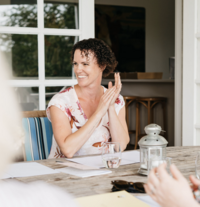

My flagship membership, The Modern Marketing Collective, has helped almost 1,000 entrepreneurs to become known as the go-to in their niche, attract more of their ideal clients and enjoy the flexibility, fulfilment and financial reward that they deserve.
Want help growing your business?
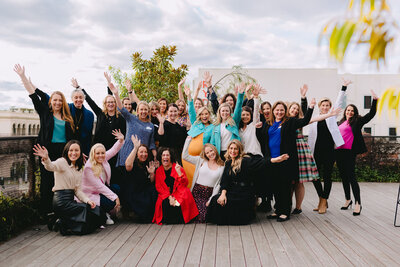

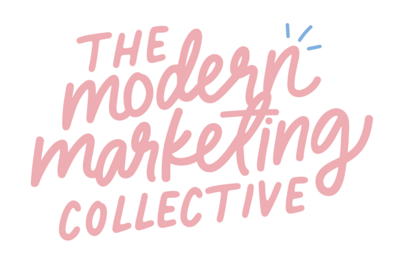

I acknowledge the Wurundjeri people as the traditional and ongoing custodians of the Kulin Nation - the place I call home, and I pay my deepest respects to their Elders past and present.
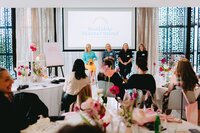





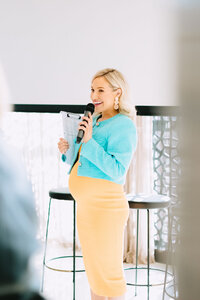

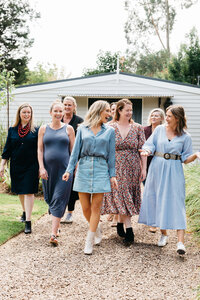

@EMILYOSMOND





